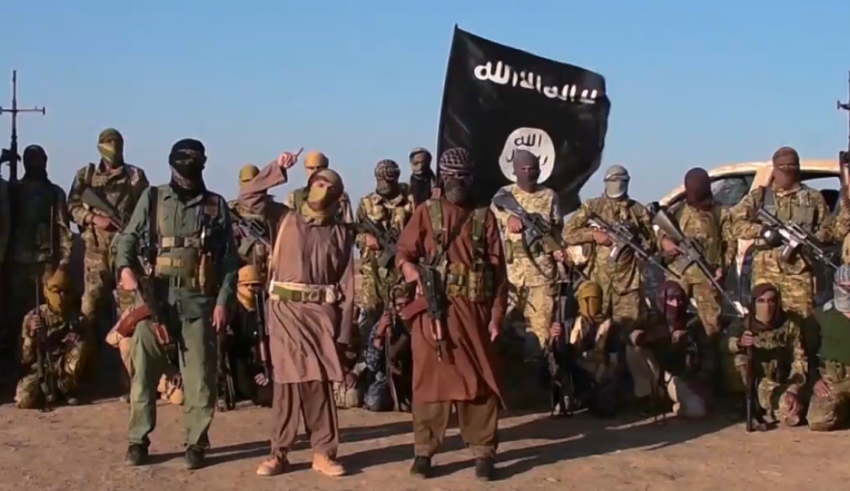
The consequences of the fall of a strategically secondary country like Afghanistan will reverberate for years at the international level. The main challenges after the fall of Kabul have been the stabilization of the country to avoid migratory flows and a new wave of Islamist terrorism.
Following the 9/11 attack, the United States launched the invasion of Afghanistan in 2001 with the intention of dismantling Al Qaeda and its Taliban allies. The mission dismantled Al Qaeda’s infrastructure and removed the Taliban from power, who took refuge in the mountainous areas of the country and in Pakistan. The high point of the war was in 2011 with the death of Bin Laden. However, the US never managed to establish legitimate democratic institutions in Afghanistan that had effective control over the whole country. With the withdrawal of US troops after almost 20 years in the country, these institutions collapsed.
In this respect, it has been proven by the U.S. Department of Defense that Afghanistan has once again become an international terrorist coordination center in the two years since the Taliban returned to power, unable to tackle the resurgence of the Islamic State jihadist organization. A new batch of Pentagon documents allegedly leaked on April 10, 2023, by a member of the National Guard, Jack Teixeira, indicated that the group is already planning attacks against Europe and Asia, and intends to do the same in the United States. In addition, these documents also show ISIS’s efforts to establish a network of external operations outside Afghanistan with the aim of gaining expertise in the creation of chemical weapons and the operation of drones. These documents also reveal the plot in which the group’s followers would kidnap Iraqi diplomats from the Iraqi embassies in France and Belgium to secure the release of some 4,000 imprisoned militants (Clayton, 2021).
The Pentagon has assessed the Islamic State in Afghanistan by pointing to the development of a cost-effective model of foreign operations that relies on a combination of international resources, the configuration of extensive facilitation networks, and the recruitment of operatives in target countries. Furthermore, they add that this model is likely to allow ISIS to overcome obstacles such as the existence of competent security services and thus reduce some of the plot’s timelines, which would also reduce the chances of overturning them.
It is important to remember, that the ISIS and the Taliban regime are enemies as they do not have the same objectives with respect to the Caliphate. Also, the Taliban’s consider the Islamic State as a terrorist organization which is contrary to its precepts, and since coming to power on August 15, 2021, has undertaken some operations against its hideouts. However, these actions at the hands of the Taliban regime have not prevented the jihadist organization from perpetrating numerous bloody attacks since the Taliban’s return to power. In this regard, the suicide bombing in Kabul during the international evacuation process, or in the attack against the country’s Shiite minority, should be highlighted (Ibáñez, 2021).
The creation of terrorist operational centers poses a threat to the international community, as they attempt to violate the security and rights of the citizens, since these centers are the places where most of the terrorist attacks occur. The stabilization of the country is therefore a priority for the international community and at the same time, this is the main challenge for the new Taliban government. Despite the Taliban regime arrived in Kabul with minimal use of force, they have to build a lasting peace. In the short term the government’s success depends on whether they can secure food for the Afghan population, where 14 million people are in need of nutritional assistance. After 20 years hiding in the mountains, the Taliban have limited capacity to run a modern state and will require collaboration with former leaders and foreign powers. In the medium term, stability can only be achieved without a thirst for revenge and with an inclusive government, which the international community will encourage.
Europe has an interest in the stability of Afghanistan, mainly to prevent another wave of refugees. To this end, it is for Europe together with the United States to adopt a pragmatic policy in which they will use all the instruments at their disposal to prevent it. With the new Afghanistan, a state with no international recognition, no access to its foreign reserves, and a vacuum in technical capabilities, the West has a multitude of levers to encourage the Taliban regime.
References
- Ibáñez, M. (2021). Las consecuencias globales de la debacle de Afghanistán. AgendaPublica. Retrieved from: https://agendapublica.elpais.com/noticia/17155/consecuencias-globales-debacle-afganistan
- United Nations (2022). Meetings Coverage and press Release Security Council. ‘To avert irreversible damage in Afghanistan, International Community must engage with country’s de facto authorities, mission head tells Security Council. Retrieved from: https://press.un.org/en/2022/sc14815.doc.htm
- Clayton, T (2021). Congressional Research Service. Taliban Government in Afghanistan: Background and Issues for Congress. Retrieved from: https://crsreports.congress.gov/product/pdf/R/R46955
- LISA News (2023). El ISIS estaría utilizando Afganistán como centro de operaciones terroristas. Retrieved from: https://www.lisanews.org/terrorismo/el-isis-estaria-utilizando-afganistan-como-centro-de-operaciones-terroristas/
By The European Institute for International Law and International Relations.















